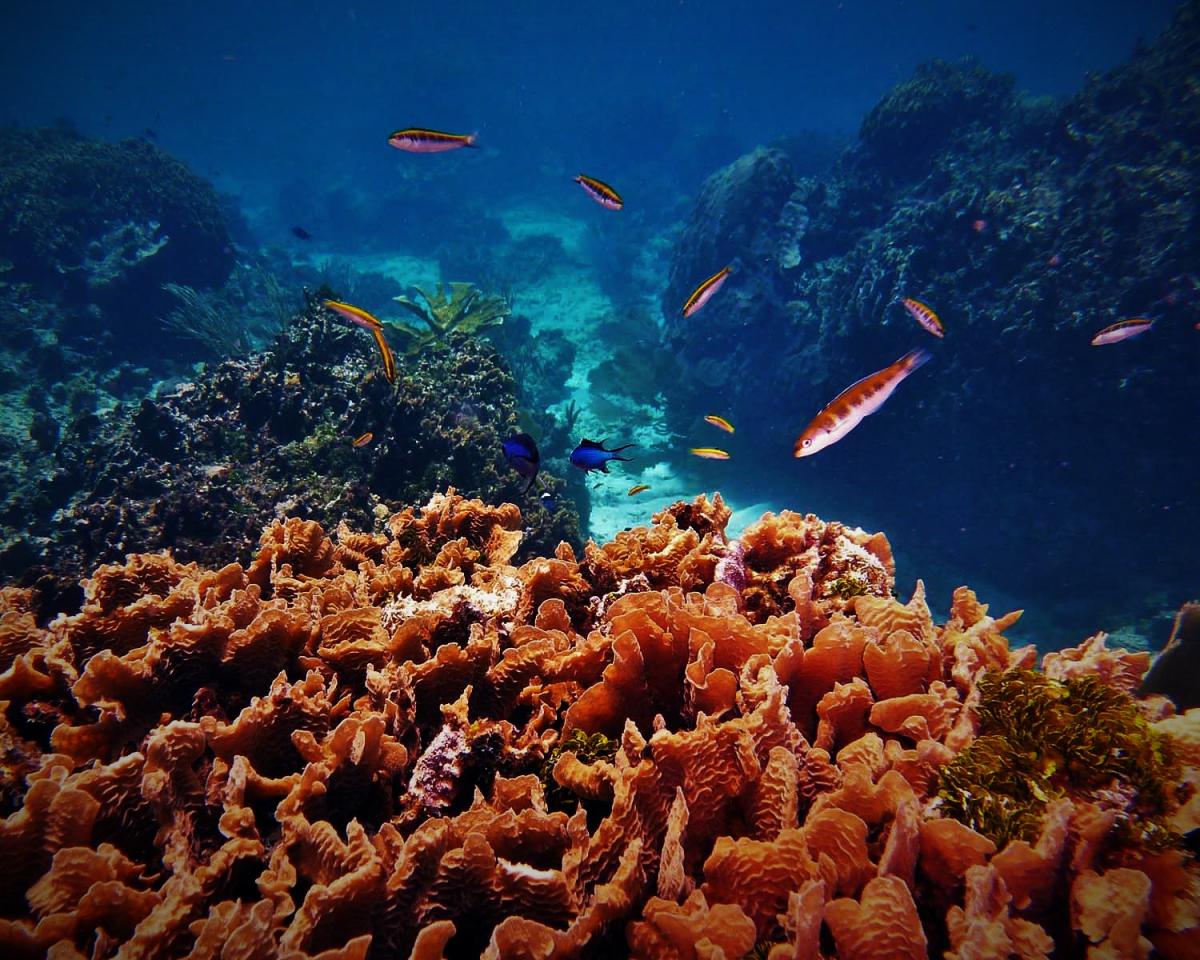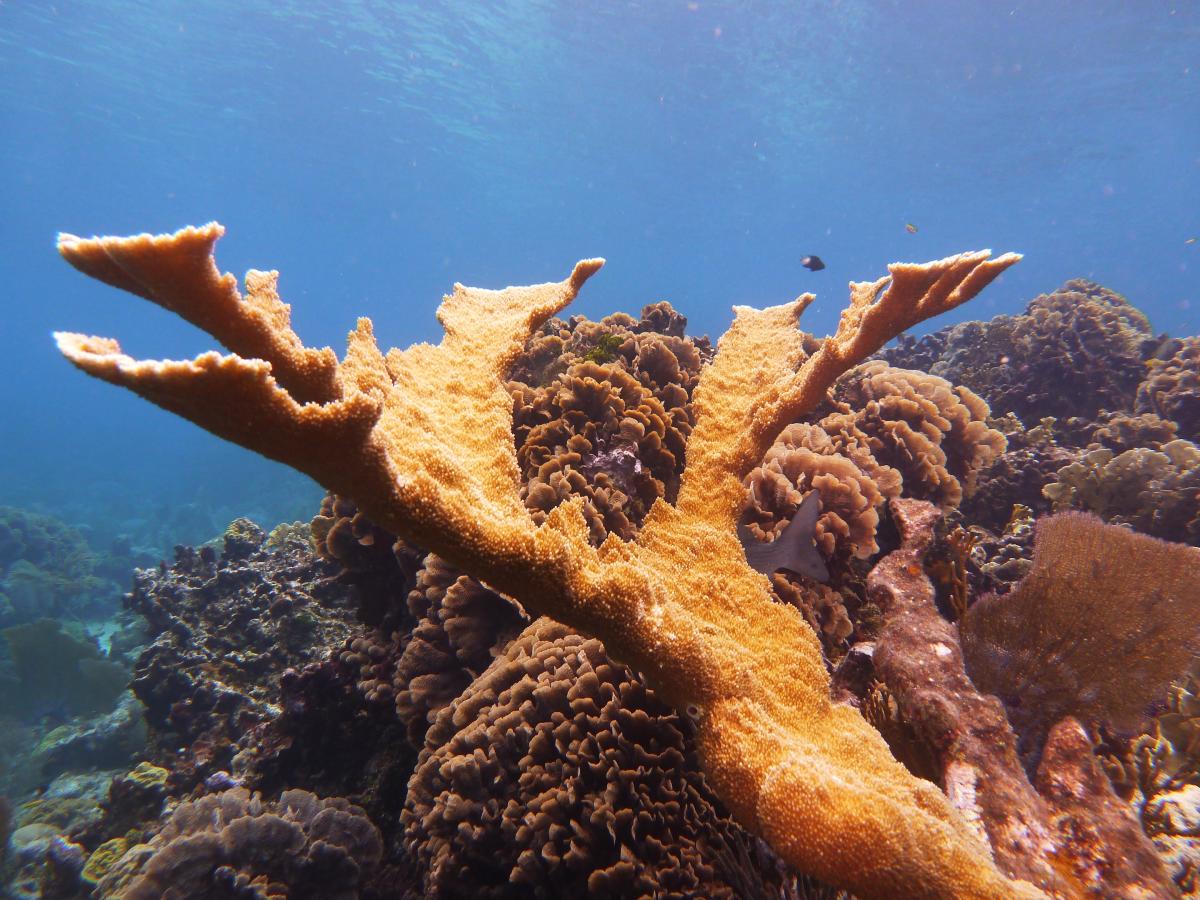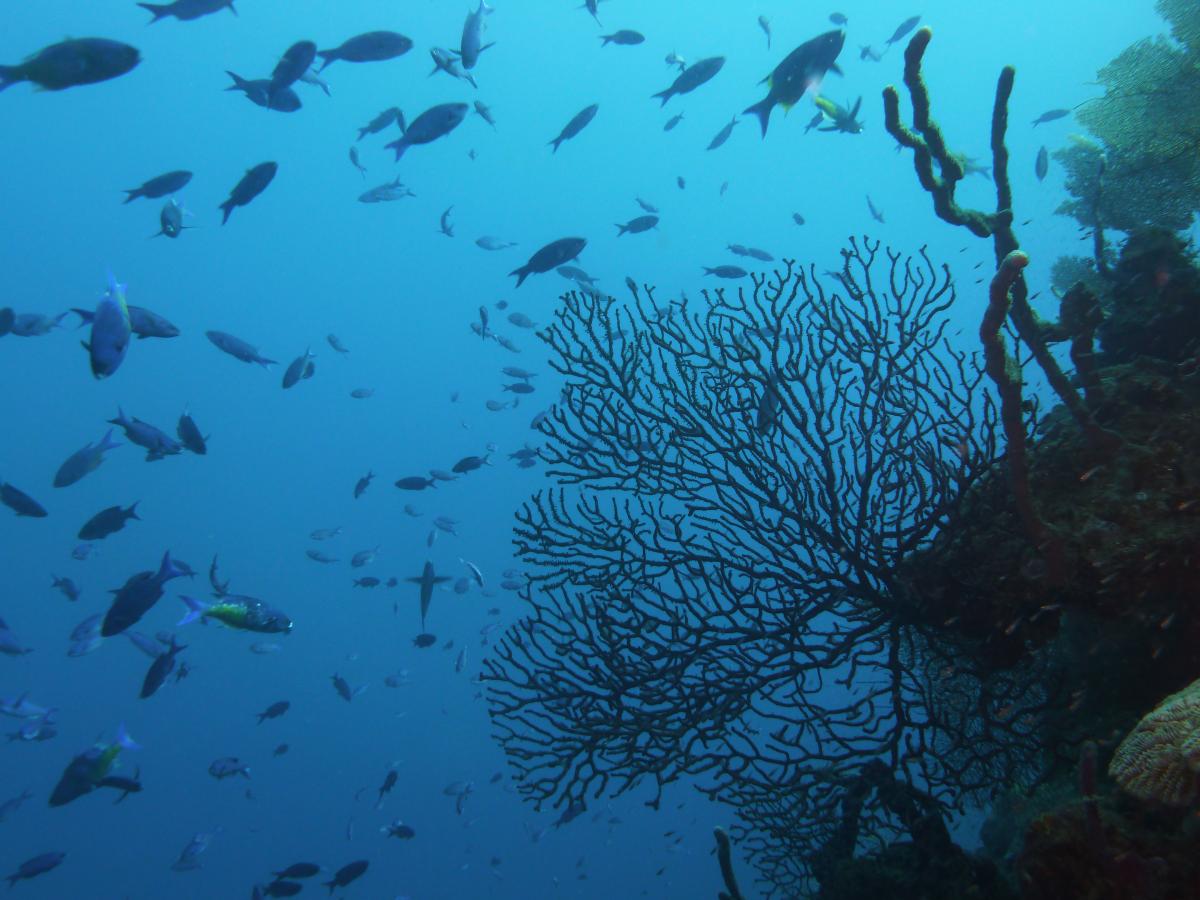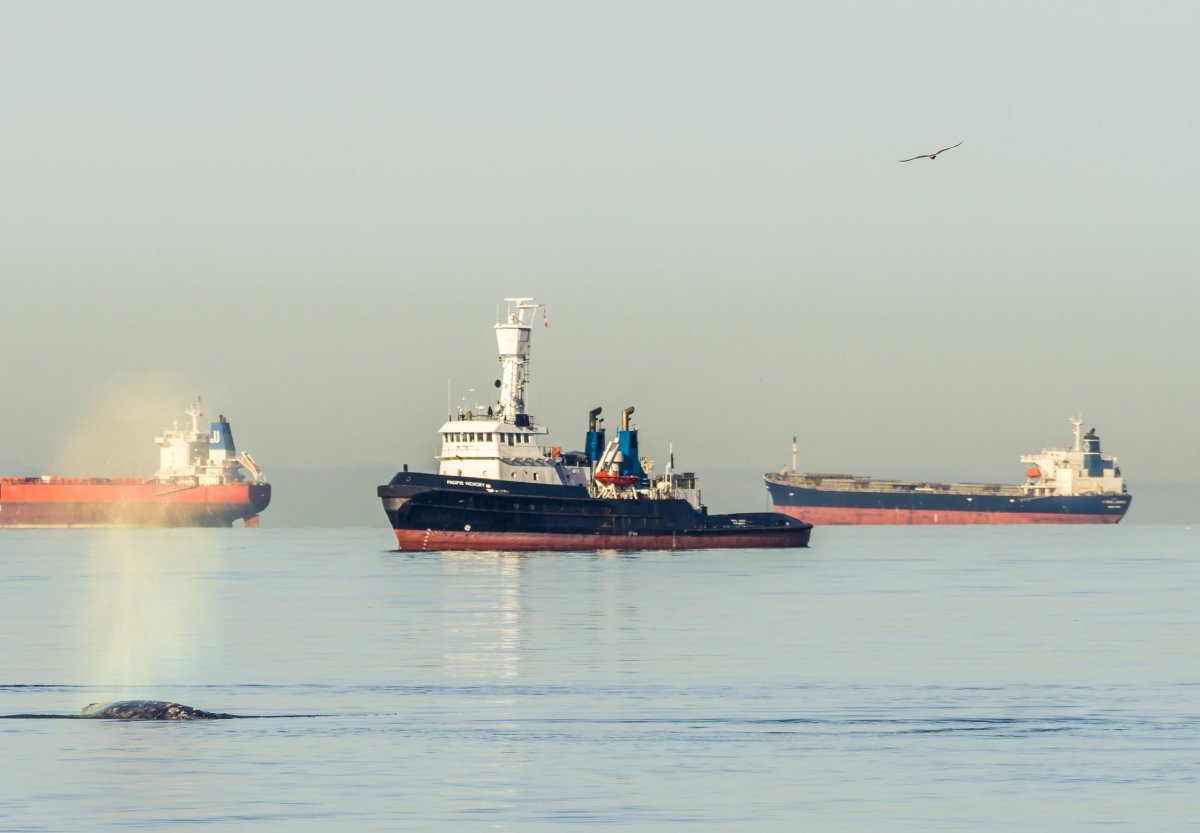Overfishing, reef decline threaten greater Caribbean and Pacific island fisheries – IUCN reports
Gland, Switzerland, 8 June 2017 (IUCN) – Overfishing and the degradation of coral reefs across the Caribbean and Pacific islands are pushing many fish, including food sources like tunas and groupers, towards extinction, according to two regional Red List reports published today by the International Union for Conservation of Nature (IUCN).
The Conservation status of marine biodiversity in the Pacific Islands of Oceania Red List report includes assessments of 2,800 marine species across the 22 island states and territories of Oceania, from Papua New Guinea to the Cook Islands – a vast, species-rich but largely unexplored area. The report shows that 11% of all assessed marine species in the region are threatened with extinction, including fish that are important food sources.
The Conservation status of marine bony shorefishes of the Greater Caribbean Red List report includes assessments of 1,360 marine bony shorefishes – a group that includes most fish species found near the shore – across 38 Caribbean countries and territories. Around 5% of marine bony shorefishes in the Caribbean are threatened, the report shows, due to overfishing, invasive lionfish predation and the degradation of coral reefs and estuaries, which provide habitats and feeding grounds for many species. Species threatened by overfishing are commonly associated with reef habitat.
“These new reports ring alarm bells for marine life across the Pacific and Caribbean, hard-hit by unsustainable fishing and the destruction of habitats. These are the latest in a series of IUCN Red List reports covering more than half of the global ocean, which collectively reveal a looming threat to life below water. It is essential that we use this new science and analysis to effectively conserve marine resources, which provide us with food, enhance our health, sustain the global economy and protect us from the worst effects of climate change,” says IUCN Director General Inger Andersen.
In the Pacific islands of Oceania, around a third of reef-building coral species are threatened with extinction. Overfishing and the destruction of habitats – including coral reefs – are causing the decline of many fish species, the report’s authors warn. For example, four species of grouper, which are an important food source, are listed as Vulnerable– with populations affected by overfishing and the degradation of nearshore habitats, including mangrove, seagrass and reef habitats.
In the Caribbean, the Vulnerable red snapper (Lutjanus campechanus) and the Endangered Atlantic bluefin tuna (Thunnus thynnus) are among the threatened species targeted by fishers.
Fewer individual coral species – around a fifth – are threatened with extinction in this region, although overall Caribbean reefs are in worse shape than those in Oceania due to human pressures adding to the effects of ocean warming. Various local- to broader-scaled threats are flattening reefs across much of the Caribbean, particularly affecting the Elkhorn coral (Acropora palmata) and Staghorn coral (Acropora cervicornis).These endemic, branching corals, which are among the most important reef-building coral species in the Caribbean and vital for the survival of reefs, are both classed as Critically Endangered.
“We know that well-managed marine protected areas can increase the resilience of marine species in the Caribbean and the Pacific in the face of mounting threats. In an extremely species-rich region dominated by small island states, inter-governmental cooperation between countries should be boosted to ensure protected areas are managed effectively, and destructive fishing practices are minimised,” says Kent Carpenter, manager of the IUCN Marine Biodiversity Unit.
Some species, such as the Vulnerable migratory bigeye tuna (Thunnus obesus) need larger, more geographically inclusive marine protected areas for effective conservation, the report recommends. Other recommendations include using IUCN Red List data to identify and conserve threatened species ‘hotspots’, improving resources for regional fishery agencies, and protecting spawning areas for species of key socioeconomic importance.
Islanders in both the Pacific and Caribbean regions rely heavily on reef fisheries and other marine resources for food security and income generation. In Oceania, fish consumption rates are high at about 50 kg annually per person, as compared to about 8 kg for people living in continental areas such as Australia.
The release of the two reports coincides with the on-going UN Ocean Conference in New York, where IUCN has been calling for urgent action on climate change and marine plastic pollution.
The Conservation status of marine biodiversity in the Pacific Islands of Oceania Red List report can be accessed here.
The Conservation status of marine bony shorefishes of the Greater Caribbean Red List report can be accessed here.
This work was supported by the Agence Française de Développement (AFD) and the France-IUCN partnership.






